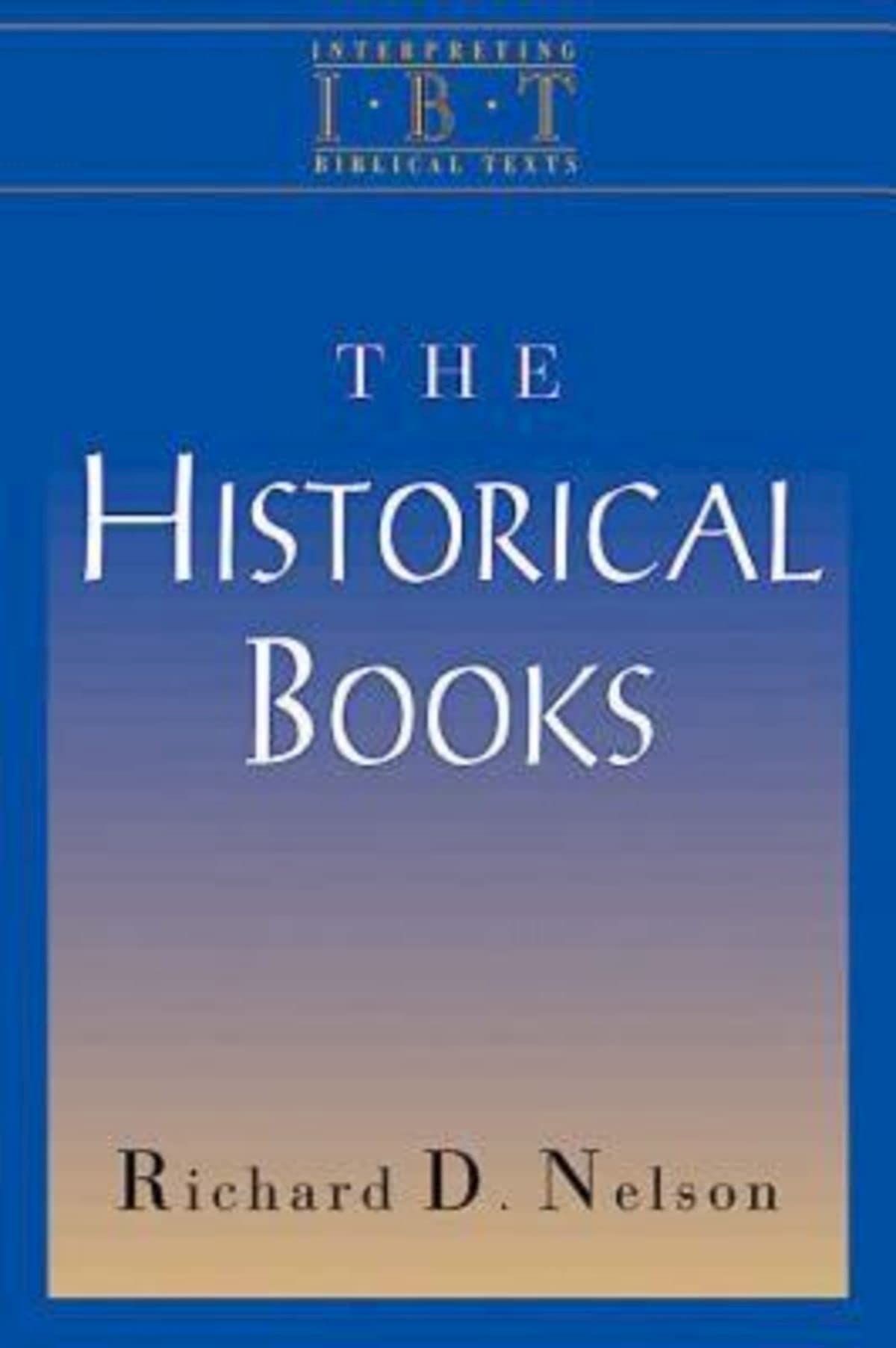In The Historical Books, Richard D. Nelson introduces neophyte readers to the basic concepts of history and historical writing and provides a simple framework of events and periods that can be used to situate historical data reported in texts or presupposed by them. Standard interpretive methods are accessibly explained and illustrated by consistent reference to 2 Samuel 24. The focus of discussion moves from the narrow level of individual pericope to larger units of meaning. Because the ultimate goal is to expose the claims made on the reader by these biblical texts and to help the reader make sense of these claims, the interpretive spotlight rests on the present interaction of text and reader rather than on the past. Richard D. Nelson is professor emeritus of Biblical Hebrew and Old Testament Interpretation at Perkins School of Theology, Southern Methodist University. His teaching career on the college and seminary level has spanned more than thirty-five years. He is the author of nine books on biblical themes, including The Historical Books (Abingdon Press, 1998) and Historical Roots of the Old Testament (1200–63 BCE). He has published commentaries on Deuteronomy, Joshua, Judges, and 1–2 Kings. Professor Nelson has been a visiting scholar at the Katholieke Universiteit Leuven, Belgium, Princeton Theological Seminary, and Tyndale House, Cambridge, England. He is an ordained pastor of the Evangelical Lutheran Church in America. The Historical Books By Richard D. Nelson Abingdon Press Copyright © 1998 Abingdon Press All rights reserved. ISBN: 978-0-687-00843-8 Contents FOREWORD, PREFACE, OUTLINES OF THE HISTORICAL BOOKS, PART ONE ISSUES IN READING THE HISTORICAL BOOKS, CHAPTER 1 WHAT ARE WE READING?, CHAPTER 2 THE HISTORICAL CONTEXT, CHAPTER 3 PATTERNS OF READING, PART TWO READING THROUGH ISRAEL'S HISTORICAL STORY, CHAPTER 4 DEUTERONOMISTIC HISTORY AND CHRONISTIC BOOKS, CHAPTER 5 THE BOOK OF JOSHUA, CHAPTER 6 THE BOOK OF JUDGES, CHAPTER 7 THE BOOKS OF 1 AND 2 SAMUEL, CHAPTER 8 THE BOOKS OF 1 AND 2 KINGS, CHAPTER 9 THE BOOKS OF 1 AND 2 CHRONICLES, CHAPTER 10 THE BOOKS OF EZRA AND NEHEMIAH, NOTES, SELECTED BIBLIOGRAPHY, INDEX, CHAPTER 1 What Are We Reading? WHAT ARE THE HISTORICAL BOOKS? The classification "historical books" was used by the church fathers (for example, Cyril of Jerusalem, d. 386) to refer to Genesis through Esther. However, in common scholarly usage this designation usually encompasses Joshua, Judges, Samuel, Kings, Chronicles, Ezra, and Nehemiah. Ruth and Esther (along with apocryphal books like Judith or 1 and 2 Maccabees) are also arguably historical books, but are not covered in this volume. The historical books fall naturally into two divisions, based on their place in the history of the canon, their time of origin, and their thematic interests. The earlier of these two historical complexes consists of the books of Joshua, Judges, Samuel, and Kings. Jewish tradition groups these books together to make up a portion of the canon called the Former Prophets. Taken together, these books tell the story of Israel's history in the land. This story begins with the invasion of Canaan (the first chapters of Joshua) and ends with the exile of the people of Judah from their land (the last chapters of 2 Kings). Scholars usually call this lengthy piece of history writing the Deuteronomistic History (abbreviated DH) because of its close conceptual connections to Deuteronomy (see chapter 4 ). DH presents Israel's story in relation to the question of obedience or disobedience to the "book of the law," that is, the book of Deuteronomy. This law book is mentioned for the first time in Joshua 1:8 and for the last time in 2 Kings 23:24-25. The Deuteronomistic History looks backward in time, seeking to explain the successes and failures of the nation in terms of its observance or violation of God's law. The second large historical complex consists of the books of Chronicles and Ezra-Nehemiah. In the Hebrew Bible, these books appear at the end of the third division of the canon called the Writings. In defiance of their chronological order, Ezra-Nehemiah usually comes before Chronicles in Jewish canonical tradition. However in some Hebrew manuscripts, including the very early Aleppo Codex (tenth century CE), Chronicles opens the Writings section and Ezra-Nehemiah closes it. In the Christian canonical tradition, derived from the Greek Old Testament, these books follow Kings. The Christian arrangement thus follows the principle of chronological order. The present form of Chronicles is linked to Ezra and Nehemiah as a continuous story by the overlap of 2 Chronicles 36:22-23 and Ezra 1:1-3. However, scholars continue to debate whether this second historical complex ever made up a single unified work in the same sense that the Deuteronomistic History did. Those who emphasize the similarities in style and outlook between Chronicles and Ezra-Nehemiah sometimes designate













